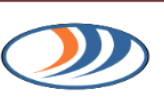
Conducting successful research requires a strong foundation in research methodology and the application of hypothesis testing. These elements ensure your study is methodologically sound, credible, and capable of producing actionable insights.
What is Research Methodology?
Research methodology is the framework that guides how data is collected, analyzed, and interpreted. It includes:
- Research Design: Determining whether the study will be qualitative, quantitative, or mixed-methods.
- Data Collection: Choosing between primary methods (surveys, experiments) or secondary sources (academic journals).
- Analysis: Using appropriate tools or statistical techniques to process data.
- Ethics: Ensuring participant confidentiality and informed consent.
Tips for Writing Research Methodology:
- Be concise but thorough in describing methods.
- Justify your choices with references.
- Include ethical considerations and acknowledge limitations.
Hypothesis Testing in Research
Hypothesis testing allows researchers to evaluate assumptions about a population based on sample data.
- Key Concepts:
- Null Hypothesis (H₀): Assumes no effect or relationship.
- Alternative Hypothesis (H₁): Suggests a significant effect or relationship exists.
- P-value: Determines statistical significance.
-
Steps in Hypothesis Testing:
- State your hypotheses clearly.
- Select the correct statistical test (e.g., t-test, chi-square).
- Analyze data and compare results to the significance level (commonly 0.05).
Common Errors:
- Misinterpreting p-values.
- Using an inadequate sample size.
- Ignoring assumptions like data normality.
Key Takeaways for Researchers
- A clear and well-defined methodology ensures research reliability.
- Hypothesis testing is essential for validating findings and drawing meaningful conclusions.
- Stay transparent by addressing limitations and maintaining ethical standards.
Whether you’re writing a dissertation, conducting market research, or exploring academic inquiries, mastering these elements is crucial to producing impactful work.
For tailored guidance or to learn more, reach out to our expert research services for help!

Leave a Reply